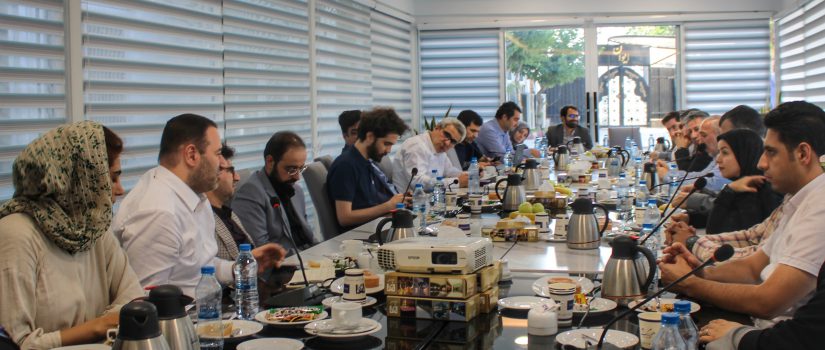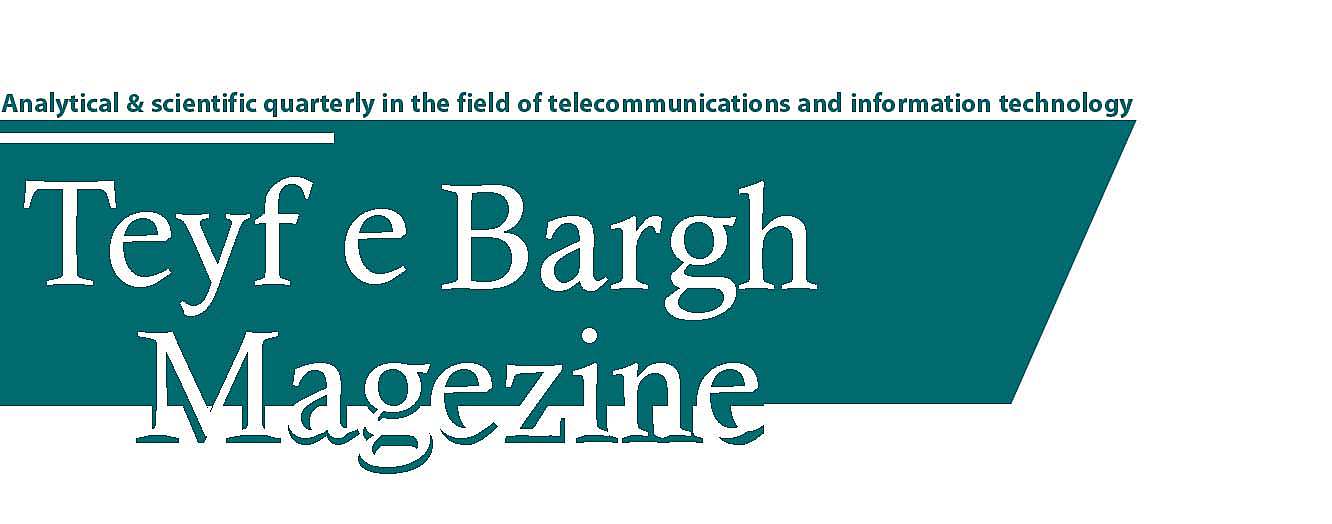
In the meeting “Issues and Priorities of the Ministry of ICT in the Fourteenth Government,” organized by the Teyf Scientific-Analytical Group on July 24, 2024, some managers and experts in the field of communications and information technology gathered to discuss their issues and demands from the future government, especially the next Minister of Communications.
At the beginning of this meeting, Mohammad Keshvari, the head of the Teyf Group, gave a brief presentation on the challenges of the industry and the communications sector in both mobile and fixed domains, as well as some of the most important issues related to the cyberspace that the Ministry of Communications is at the forefront of confronting. After reviewing the performance and strengths and weaknesses of the three-year period of the Ministry of Communications, he emphasized the President-elect’s insistence on implementing the Seventh Plan law, one of the central promises during the election period, and examined the quantitative and qualitative goals of this law in the field of communications.
The most important points raised in the presentation by the head of the Teyf Group were as follows:
- The goals of the Seventh Plan, especially those related to the development of fiber optics, are ambitious and achieving them is very challenging. Even partial achievement requires special priority and focus on this project.
- Provisions in the Seventh Plan, such as drafting the charter for the establishment of the Fiber Optic Network Development Fund and adjusting the tariffs for communications and information technology services, are supportive of the sector’s development. The Minister of Communications must fully utilize this capacity.
- Changes in some major approaches affecting the development of communications in the country, such as reforming the service economy system (tariffs, preferential traffic, and proper support mechanisms for content) and the Ministry of Communications’ role in combating internet restrictions, are crucial. These aspects significantly impact the quality of the internet and the users’ satisfaction and must receive special attention from the Minister.
- Resolving the filtering issue, which has raised significant expectations within parts of society, is not a black-and-white matter. Although the Minister alone does not have sufficient authority to solve it, they should use the capacity of the Supreme Council of Cyberspace and collaborate with the President to devise solutions to mitigate the problems caused by filtering and circumvention tools.
In the continuation of the meeting, several participants expressed their views and outlined the industry’s problems and priorities from their perspectives. Here are the key points:
Limit Priorities for the Minister
Farzin Ferdows, member of the board of directors of Tehran Chamber of Commerce and CEO of Sarava:
Avoiding unnecessary prioritization and having too many priorities is detrimental. Excessive prioritization means that, ultimately, the Ministry of Communications cannot achieve any specific outcome due to resource limitations. It is desirable for the Ministry to set a few clear priorities alongside fulfilling its legal and essential duties.
Private Sector Implementation
Soheil Mazloumi, member of the Computer Guild Organization and a member of the working group for selecting Ministry candidates:
Mazloumi explained the performance of the working group, detailing the parameters for selecting individuals, strengths and weaknesses of the process, and the final eight candidates. He emphasized that the government should not try to handle everything itself and should delegate tasks to the private sector.
Sanctions, Filtering, and Monopolies Affect Internet Quality
Pouya Pirhosseinlou, CEO of AberArvan and member of the Electronic Commerce Association:
The quality of the internet depends heavily on sanctions, filtering, and monopolies. The Minister of Communications should clarify and pursue their policies in these areas.
Coordination Among Cross-Sector Regulators in the Digital Economy
Hamidreza Naeini, CEO of Rahbar Informatics Holding:
The Ministry of ICT has three main areas: infrastructure, the internet, and the digital economy. The primary challenge for the Minister is resolving conflicts of interest in the digital economy sector. Coordination with other regulators and strengthening the private sector in providing better services in the digital economy are essential.
Ability to Manage Conflicts of Interest
Mohammad Akhavan, CEO of Farafan:
A minister needs to be a politician and economist, not just technically proficient, to manage conflicts of interest effectively.
Minister Should be Tall and Development-Oriented
Bagher Samadi, CEO of Asan Pardakht (AP):
The Minister should have a developmental vision, be able to build consensus, and be data-driven in decision-making. The experience of working in the private sector would be beneficial.
Biggest Challenge is Infrastructure Company
The CEO of one of the major ICT companies (name not disclosed):
The main issue is the infrastructure company. Its monopolistic and outdated structure needs to be reformed, and the private sector should be given more access and responsibilities.
Industry’s Economy Has Shrunk
Mehrdad Mir Asmaeili, CEO of Arg Telecom:
The industry’s economic size has decreased significantly despite substantial quantitative growth. Future ministers must address the economic challenges and improve investment conditions.
Coordination with the President is Key
Sadina Abai, head of the ICT Commission of the Iran Chamber of Commerce and a member of the working group proposing the Minister of Communications:
The Minister plays a crucial role in realizing the President’s promises and must work in close coordination with the President to address issues such as filtering.
Need for a Freelance Support Task Force
Davoud Adib, head of the Telecom Exporters Association and a member of the working group for selecting the Minister of Communications:
The industry’s priorities include asset utilization, resolving monopoly issues, developing economic zones, and supporting freelancers and technological exports.

